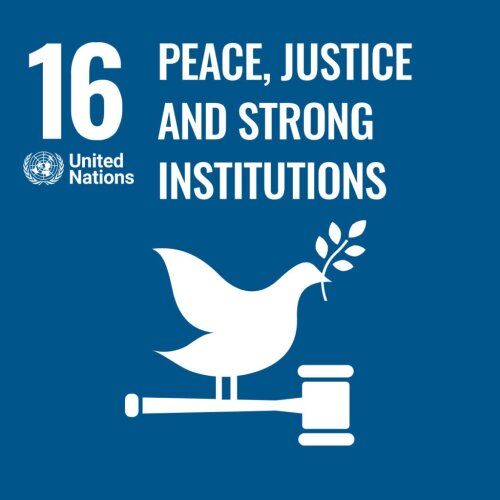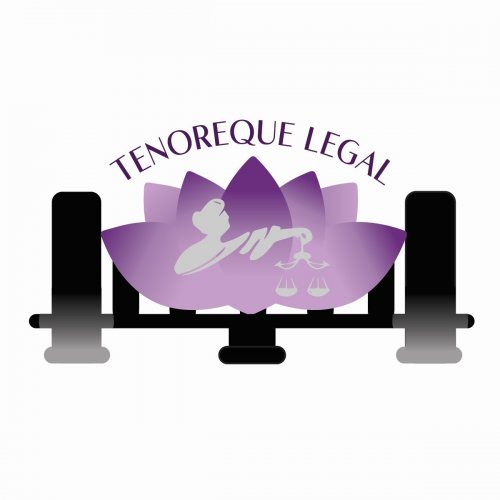Best Government Relations & Lobbying Lawyers in Trinidad and Tobago
Share your needs with us, get contacted by law firms.
Free. Takes 2 min.
Or refine your search by selecting a city:
List of the best lawyers in Trinidad and Tobago
About Government Relations & Lobbying Law in Trinidad and Tobago
Government relations and lobbying in Trinidad and Tobago involve engaging with government officials and stakeholders to influence policy decisions, legislation, and regulations. This field plays a crucial role in shaping the economic and political landscape by promoting collaboration between the public and private sectors. Representation in these activities often requires navigating a complex system of rules and ethical considerations to ensure compliance with local laws and regulations. Understanding the legal framework governing these activities is critical for individuals and organizations involved in influencing government policy and decision-making.
Why You May Need a Lawyer
In Trinidad and Tobago, legal assistance in government relations and lobbying may be necessary for various reasons. Individuals or businesses may require a lawyer when they need to:
- Navigate complex regulatory and compliance issues related to lobbying activities.
- Ensure that lobbying efforts comply with local laws to avoid legal repercussions.
- Draft contracts or agreements that involve government entities.
- Represent their interests when lobbying for policy changes or new legislation.
- Understand and comply with ethical standards and disclosure requirements.
- Manage disputes or legal challenges arising from lobbying activities.
Local Laws Overview
Key aspects of Trinidad and Tobago's laws relevant to government relations and lobbying include:
- The Integrity in Public Life Act, which regulates interactions between public officials and private entities to prevent corruption and ensure transparency.
- The Freedom of Information Act, which grants the public access to government information and can affect lobbying strategies by making certain activities more transparent.
- Employment and labor laws, affecting how lobbying efforts may align with or influence labor policies.
- Environmental regulations, particularly for industries seeking policy changes impacting environmental standards.
Understanding these laws is essential to ensure that lobbying and government relations efforts are both lawful and effective.
Frequently Asked Questions
What is considered lobbying in Trinidad and Tobago?
Lobbying involves activities aimed at influencing decisions made by government officials. This can include direct communication with legislators, as well as efforts to sway public opinion or engage in advocacy campaigns.
Do lobbyists need to register in Trinidad and Tobago?
Currently, there is no formal lobbyist registry in Trinidad and Tobago. However, lobbyists must adhere to ethical standards and applicable local laws.
What ethical standards apply to lobbying activities?
Ethical standards ensure transparency and integrity in lobbying practices. These include refraining from corrupt practices, declaring conflicts of interest, and respecting confidentiality agreements.
What role does the Integrity Commission play?
The Integrity Commission is tasked with ensuring public officials adhere to ethical standards, which indirectly influences lobbying practices by promoting transparent interactions between public servants and lobbyists.
Are there any restrictions on lobbying by foreign entities?
While domestic regulations do not specifically restrict foreign lobbying, international firms must navigate local legal requirements and ethical norms when engaging in lobbying activities.
How can legal advice help my lobbying efforts?
Legal advice can ensure compliance, improve strategy effectiveness, and reduce risks associated with lobbying activities. A lawyer can also assist in drafting contracts and handling disputes.
Can a lawyer help if I'm accused of unethical lobbying practices?
Yes, a lawyer can provide legal representation, develop a defense strategy, and assist in mitigating potential penalties or reputational damage.
What is the government's stance on lobbying?
The government acknowledges the role of lobbying in policy development but emphasizes transparency and ethical conduct to prevent undue influence and corruption.
Are lobbying efforts confidential?
While some aspects of lobbying may remain confidential, there is an increasing push towards transparency, especially for activities that significantly impact public policy.
How do I stay informed about changes in lobbying laws?
Consulting legal professionals, subscribing to legal updates, and participating in industry conferences can help stay informed about any changes in lobbying laws and regulations.
Additional Resources
For more information and assistance, consider reaching out to these organizations:
- The Integrity Commission of Trinidad and Tobago
- The Law Association of Trinidad and Tobago
- The Ministry of the Attorney General and Legal Affairs
- Local industry organizations that facilitate networking and advocacy efforts
Next Steps
If you require legal assistance in government relations and lobbying, consider the following steps:
- Consult with a lawyer specializing in government relations and lobbying law to discuss your needs and legal options.
- Review your organization's objectives and compliance status to identify potential areas of concern or opportunity.
- Develop a strategy with the help of legal counsel to ensure ethical and effective lobbying efforts.
- Stay up-to-date on legal changes and maintain open communication with legal professionals to adjust strategies as needed.
Lawzana helps you find the best lawyers and law firms in Trinidad and Tobago through a curated and pre-screened list of qualified legal professionals. Our platform offers rankings and detailed profiles of attorneys and law firms, allowing you to compare based on practice areas, including Government Relations & Lobbying, experience, and client feedback.
Each profile includes a description of the firm's areas of practice, client reviews, team members and partners, year of establishment, spoken languages, office locations, contact information, social media presence, and any published articles or resources. Most firms on our platform speak English and are experienced in both local and international legal matters.
Get a quote from top-rated law firms in Trinidad and Tobago — quickly, securely, and without unnecessary hassle.
Disclaimer:
The information provided on this page is for general informational purposes only and does not constitute legal advice. While we strive to ensure the accuracy and relevance of the content, legal information may change over time, and interpretations of the law can vary. You should always consult with a qualified legal professional for advice specific to your situation.
We disclaim all liability for actions taken or not taken based on the content of this page. If you believe any information is incorrect or outdated, please contact us, and we will review and update it where appropriate.
Browse government relations & lobbying law firms by city in Trinidad and Tobago
Refine your search by selecting a city.













